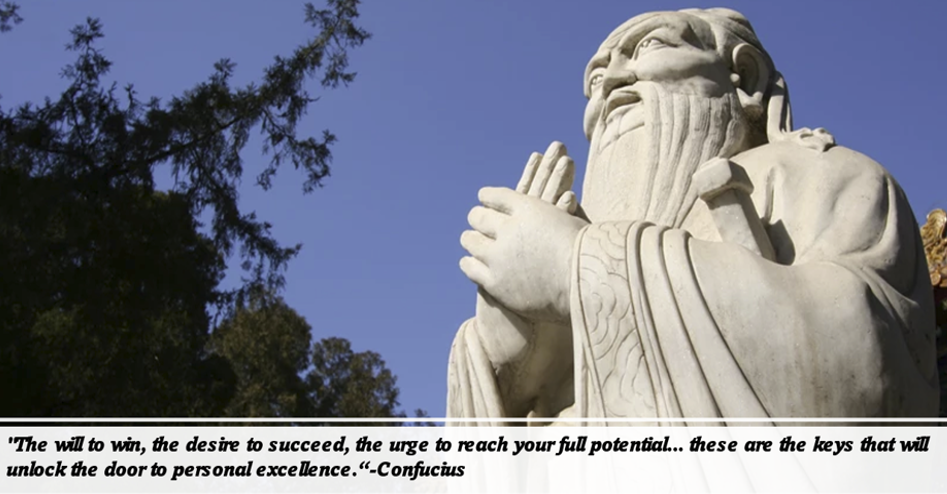This Eastern Philosophy

Confucius (551-479 BC) is one of the most prominent figures in Chinese philosophy, and his teachings continue to have a significant influence on Eastern culture to this day. Confucianism is not just a religion, but a way of life that emphasizes the importance of social harmony, respect for elders, and moral uprightness. In this blog, we will explore the life and teachings of Confucius, the principles of Confucianism, and the impact that they continue to have on the modern world.
The Life and Teachings of Confucius
Confucius was born into a noble family in the state of Lu, in what is now modern-day Qufu in the Shandong province of China. From an early age, he was interested in learning and began studying the classics of Chinese literature and history. Confucius was known for his exceptional memory and his ability to recall vast amounts of information.
As he grew older, Confucius became increasingly concerned with the political and social turmoil of his time. He believed that the rulers of his day were corrupt and that the people were suffering as a result. Confucius believed that the key to restoring order and peace was to promote virtue, morality, and education.
Confucius's teachings focused on the importance of self-cultivation and the pursuit of virtue. He believed that people should strive to become morally upright and to lead by example. Confucius believed that a leader's primary responsibility was to set a good example for their followers, and he stressed the importance of empathy, compassion, and respect for others.
The Principles of Confucianism
Confucianism is a complex philosophical system that emphasizes the importance of personal and social responsibility, moral cultivation, and education. The principles of Confucianism can be summarized as follows:
- Ren (Humanity): The concept of ren is central to Confucianism. It refers to the ideal of being a good person, of having empathy for others, and of treating others with respect and kindness.
- Li (Ritual): Confucius believed that rituals and ceremonies were important for promoting social harmony and for reinforcing the values of ren. He believed that people should be mindful of their behavior in public and should strive to be respectful and courteous.
- Zhong (Loyalty): Confucius believed that loyalty to one's family, friends, and community was important for promoting social stability. He believed that people should be willing to make sacrifices for the greater good.
- Xiao (Filial Piety): Confucius believed that respect for one's parents and elders was essential for promoting social harmony. He believed that people should be grateful for the sacrifices that their parents had made for them and should repay them by being obedient and respectful.
- Wen (Culture): Confucius believed that education and culture were essential for promoting moral development and for ensuring social stability. He believed that people should study the classics of Chinese literature and history in order to cultivate a sense of moral responsibility.
The Impact of Confucianism
Confucianism has had a profound impact on Chinese culture and society. It has shaped the way that people think about family, community, and the role of the individual in society. Confucianism has influenced everything from politics to education to art and literature.
In modern China, Confucianism has experienced a resurgence in popularity. Many people are turning to Confucianism as a way of dealing with the rapid social and economic changes that are taking place. Confucianism is seen as a way of promoting social harmony and personal responsibility in a time of rapid change.
Confucius and Confucianism are an unavoidable part of Eastern philosophy, and have had a profound impact on Chinese culture and society. The principles of ren, li, and education continue to be central to the Confucian tradition, and have helped to shape the moral and ethical values of generations of Chinese people. While Confucianism has been criticized for its adherence to social hierarchies and authoritarianism, its influence on Chinese culture and society cannot be denied, and it remains an important part of China's past, present, and future.
Quotes from Confucius
"It does not matter how slowly you go as long as you do not stop."
"Choose a job you love, and you will never have to work a day in your life."
"The man who moves a mountain begins by carrying away small stones."
"Life is really simple, but we insist on making it complicated."
"Study the past if you would define the future."
"The will to win, the desire to succeed, the urge to reach your full potential... these are the keys that will unlock the door to personal excellence."
"Real knowledge is to know the extent of one's ignorance."
"Everything has beauty, but not everyone sees it."
"It is better to light one small candle than to curse the darkness."
"The superior man is modest in his speech, but exceeds in his actions."
"Before you embark on a journey of revenge, dig two graves."
More About this Eastern Philosophy: See here




Leave a Reply
You must be logged in to post a comment.